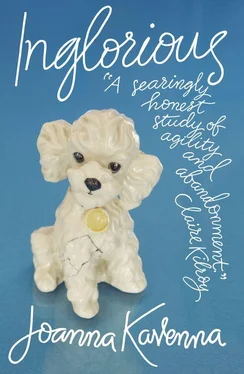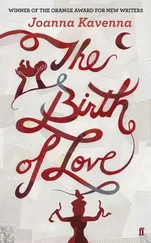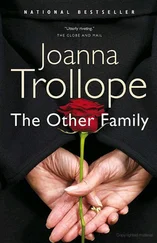She would never have been friends with Grace, had her mother not died. It was after the death — only a few weeks after — that she went to a party and got so drunk she started talking to Grace about extinction. Grace — always one for talk — lapped it all up and ordered them a taxi. Grace liked Liam from the start; she called him the beauty. Really she was a tonic, and Rosa soon found she was unburdening everything to Grace. She disgorged it all, and Grace smoked and made her salient comments, qua a lot of psychogurus and philosophers Rosa hadn’t read. While Rosa had lost all sense of myth and purpose, Grace was sure she had it cracked. ‘Humanism, with dignity,’ she said, Grace the oracle with long blonde hair. ‘That’s all we need. Compassion for fellow man.’ And then she said, ‘Bentham, Mill, utilitarianism, darker twist, Sartre and existentialism, Richard Rorty. Anti-Darwinism. No selfish gene. Dependent on others. The Beauty of Creation’ — she said something like that, though it sounded pretty fluid when she said it.
On the evening when Liam spilled some of it out — not all, not all by a good way, a long shot short of the truth, but spilled out more than he had before — they were treading in matrimonial treacle, both of them well-stuck, struggling to lift a foot. That night the room was full of signs and portents. Liam had left his jacket on the floor — for him, a cataclysmic act. The kitchen was a serried shambles of pots and pans. The system had broken down. A dishcloth had dropped on the lino and no one had stooped to collect it. There were these small signs of ferment and then a few remnants of order, everything incommensurate. On the mantelpiece were some postcards, which had curled with the heat from the gas fire. The shelves were full of books they could hardly say one of them owned more than the other, the furniture belonged to both of them, tasteless though it was. The sofa, the inconsequential oak table with the matching chairs, the bookcases they had built together. The room felt like a museum, even as Liam started to speak.
‘This can’t continue,’ he was saying. He was sounding very quiet and reasonable. That was a trick of his; it had nothing to do with what he was saying at all. There was a long pause, while Rosa wondered what couldn’t continue, whether she had broken another of Liam’s domestic codes, but there was something about his expression, the twitching of his brow, and the way he kept running his hands up and down on his arms, that made her think it might be the end. He was explaining that he had talked to her before about their problems. He wasn’t sure they could carry on. Had he even said ‘fight the same fight?’ Or was it ‘run the same race?’ It was that sort of phrase-slinging, and then he said they had different goals. It was clear they had stultified. The marriage question had brought it all into relief. They had struggled on, but now they had to be sensible. He mentioned that you had to abandon a sinking ship. It was the best thing to do, for everyone.
‘But the captain has to go down with it,’ said Rosa. ‘With the ship.’ Though she realised that wasn’t the point. So she stayed there on her chair and shifted around, bit her nails, picked a scab on her finger. He was talking about love and choice and other things she later found she couldn’t really remember, and then he said, ‘There’s nothing else to do.’ He mentioned the future, a future that would make them happy. He couldn’t see it, he said, with his hand on the back of a chair. He couldn’t imagine it at all. Then he said, ‘I just don’t feel I can offer you the love you need.’
That phrase, of all of the phrases he used, was the one that really stuck in her mind. Anyway, personal pyrotechnics aside, solipsistic whinging and so on, it was clear that he had an objective. Liam was rarely honest, he hated telling the truth, but he was decisive. He stood and walked to the window. The evening light was kind to him, faint and flattering. His face looked particularly high-boned and perfect; his eyes were cloaked in shadows. He cut a fine stoical figure.
‘Things have shifted altogether,’ he said. ‘We have to let each other go.’
She put the plates back on the table, and sat down again. Already, he seemed more energetic. She realised he had been thinking this for months, perhaps years, and this caused her to reassess him. There was hardly even a chance to resist, so persuasive were Liam’s pauses. Into the pauses, she understood, he was pouring the weight of his conviction. His brow was furrowed but he had stretched his legs out under the table. He looked settled and quite determined. He would stay there, stock still and patient, until she walked the plank, unstuck herself altogether.
‘You know it too,’ he said. ‘We can’t continue.’ Rosa noted the shift. This can’t continue, we can’t continue; the transition from the impersonal to the specific was marked, almost literary in its contrivance. His speech had definitely been rehearsed. There was even a suggestion he had been coached. She wondered briefly which two-bit swine had helped him, but really it didn’t matter. He said, ‘Rosa, you know I love you. I’m really sorry about the death of your mother. But we can’t lie endlessly.’ His face was flushed and he slapped his hand on the windowsill. He sounded angry.
‘I know things have been bad. But why now, precisely? Is it because I’ve left my job?’ asked Rosa, weakly.
‘Of course not,’ he snapped. ‘That’s just another disaster. I wanted us to split and then your mother died, and so I couldn’t. Now, I suppose, I ought to think that we can’t split because you’ve left your job. But I can’t think that any more. Fundamentally I’m not the right person for you. I feel this now, more than ever before. You must feel it too. There’s a danger because of recent events that you might just cling to me, and that’s a bad idea. That will make things worse, and we’ll be even more trapped. We would have had this conversation ages ago, if it weren’t for your mother.’ His use of the subjunctive was needlessly baroque. It didn’t suit him. He was standing at the window, silhouetted against the haze, looking quite composed. It seemed that he had decided everything. She suddenly understood that there were plans built around this speech, a whole structure of necessary changes. He was far ahead of her.
He was lucid and, she later understood, dishonest. He told her he loved her. There was a lot of sad talk, and he mustered some tears. It went on for hours. At one stage she even thought he was enjoying it. He said, ‘Rosa, will you be OK?’ and tried to touch her. She brushed him off, angrily, and said, ‘Yes, yes of course.’
‘Of course I will move out,’ said Liam. ‘I’ll go as soon as you want me to.’
‘Or I can,’ said Rosa.
‘No, Rosa, definitely not,’ he said, shaking his head. Again he tried to move towards her and she stepped back. He said, ‘I won’t hear of it. I’ll go and stay with Lorne.’
At that, she nodded. She had a few ideas in her head, mingling with the glutinous stock of her earlier thoughts. She realised that he was her home, that he had been for years, and so wherever he was not was not her home anyway. Makes this room an everywhere , she thought of saying, but realised it was hardly relevant. For a long time, she had relied on love — her patched up version — to keep her sane. Later, she decided she would be the one to go. They parted at the door of the bedroom, and he hugged her to him. They held each other for a while, though in retrospect it seemed a beggarly amount, after all those years. She was startled and she couldn’t cry. She was waiting for a final confession, but he stepped back, red-faced, and said, ‘I’m just going to sort out a few things. Goodnight.’
Читать дальше












